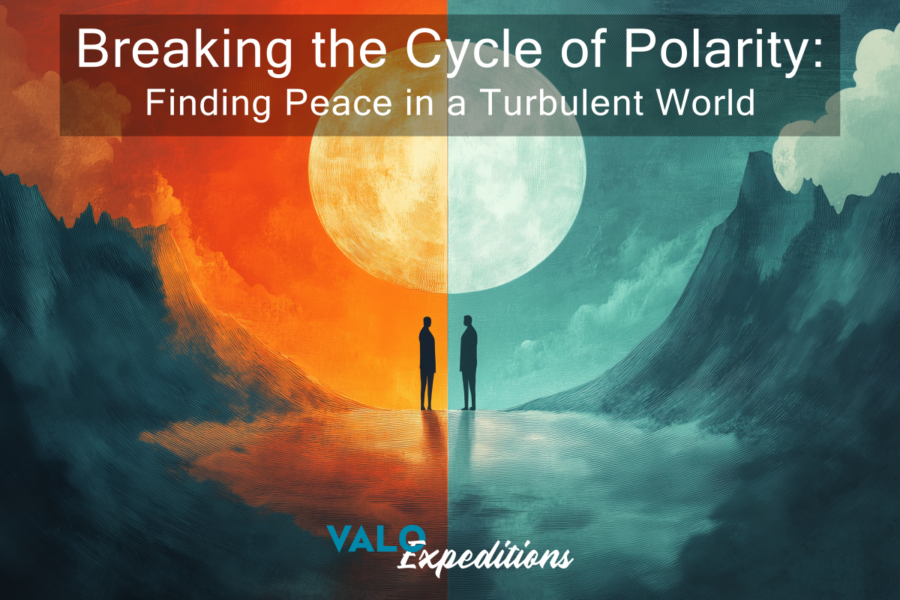Breaking the Cycle of Polarity
There’s a certain pull in times of political and social unrest—a magnetic force that draws us into heated debates, especially on social media. It’s all too easy to feel the rush of adrenaline when defending our beliefs or countering arguments we disagree with. The satisfaction of “winning” a point can become addictive, locking us into a cycle of conflict. Yet, when we stay caught in that loop of reactivity and negativity, we inadvertently feed the very separation we hope to overcome. Too often, we underestimate how polarized interactions worsen the divides between us, even as we yearn for unity. Recognizing how our own reactions and emotional investments in arguments can perpetuate chaos is the first step toward real change and finding peace.
Why Polarity Breeds More Separation
Arguing might feel productive, but it rarely shifts hearts and minds in a meaningful way. When we dig in our heels, ready for battle, we start seeing others solely as opponents—an “us versus them” mentality that dehumanizes and pushes us further apart. Social media can amplify this effect. Many platforms are designed to captivate our attention with provocative content, making it seem as if conflict is all around us and that we must fight for our perspective at every turn. The conflict escalates, draining our emotional reserves and leaving us anxious or resentful.
In reality, no one emerges truly satisfied or changed from these polarizing clashes. Instead, people become more entrenched in their beliefs. It’s like trying to extinguish a fire by throwing on more fuel. The flames of frustration grow, tensions flare, and we walk away with heavier hearts.
Holding Onto a Cosmic Neutrality Amidst Chaos
Yet there is another way to engage with the world’s turmoil without losing our center. Maintaining what we might call a “cosmic neutral” mindset does not mean indifference. Rather, it’s the choice to stay grounded and connected to our core values, even when surrounded by intense disagreements or negativity.
When confronted with inflammatory ideas or hurtful rhetoric, pausing before responding can save us from spiraling into unproductive, emotionally charged exchanges. Pausing allows us to acknowledge any feelings of defensiveness or anger that might arise, giving us a chance to reset before deciding whether and how to engage. This simple practice—just taking a breath, checking in with ourselves—acts like a circuit breaker on the cycle of escalation.
From there, choosing curiosity over confrontation can be transformative. Often, it’s more illuminating to ask questions than to present counterarguments. Questions invite conversation instead of argument. They show openness to understanding why someone believes what they do. This approach also encourages empathy, which is key when we wish to see the human being behind the viewpoint.
Stepping away from debates altogether is sometimes necessary to preserve our peace. Spending time outdoors or in stillness—contemplating the sky, listening to birds, doing breathwork—can help us regain perspective. These moments of quiet reflection recharge us, clearing away the mental clutter that can build up when we’re constantly focused on disagreements and negative news cycles.
The Futility of Fighting Against What We Don’t Want
One universal principle is that what we feed with our attention tends to grow. If we pour our energy into resisting or fighting against something, we’re still directing our focus toward it. Rather than diminishing the presence of conflict, this constant resistance can keep it center stage. The more we dwell on what we hate or fear, the more entrenched those feelings become.
Imagine instead directing that same energy toward creating or envisioning the world we do want. If peace is the goal, we must devote ourselves to peaceful actions, understanding, and compassion. While this isn’t about turning a blind eye to injustice or uncomfortable truths, it is about choosing a constructive, forward-moving orientation over a reactive, defensive one.
Reframing Our Experience to Prevent Suffering
Chaos in the external world does not have to translate into inner turmoil. We each get to decide how to frame our experience. Although it can be tempting to feel like a victim of circumstances, we retain the power to interpret events in a way that fosters growth rather than despair.
When unsettling news breaks or conflicts arise, we might ask, “What lesson can I learn here? How can I show up more compassionately?” By approaching struggles with curiosity, we transform them into catalysts for personal evolution. Suffering often emerges when we internalize the world’s chaos as our own, but it’s possible to care deeply while still maintaining healthy boundaries.
Detachment, when practiced with compassion, helps us remain involved yet not overwhelmed. We stay present enough to understand what’s happening and do our part, but we don’t allow external turmoil to entirely derail our inner balance. Moments of stillness—whether through meditation, prayer, or simply focusing on the present moment—keep us in touch with the calm within.
Choosing Unity Over Polarization
Real transformation rarely happens in a heated online quarrel. Instead, it emerges in spaces where people feel seen, understood, and valued. This shift from argument to dialogue requires patience, empathy, and a commitment to seeing our shared humanity.
We can choose to be gentle forces of stability in our personal spheres. When the world feels chaotic and divided, being a voice of reason can restore hope. Sometimes, this means resisting the urge to respond immediately or forcefully, instead deciding to be an example of the peace we wish to see. It may feel counterintuitive at first if we’re used to the adrenaline rush of conflict. But over time, this practice fosters deeper, more enduring connections—both with ourselves and others.
Holding onto a cosmic neutral mindset and focusing on unity over polarity can profoundly alter the collective atmosphere. Each of us has the power to step out of the whirlwind of confrontation and instead help build bridges of understanding. By prioritizing peace, compassion, and the willingness to learn from one another, we guide ourselves—and those around us—toward the harmony we seek.
So the next time you feel compelled to enter a heated debate or defend yourself with fervor, pause. Consider whether adding your voice to the fray will illuminate the conversation or simply stoke the fires of division. Ask if there’s a more peaceful, openhearted way to engage. In doing so, you’ll discover the strength of standing firmly in your values without succumbing to the addictive cycle of polarity. You’ll remember that peace begins within you and flows outward to the world you touch.




